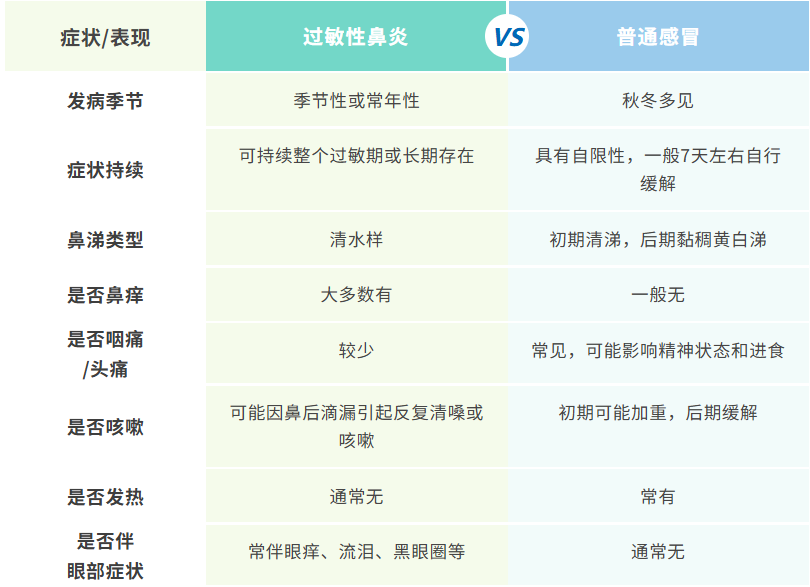In late summer and early autumn, cool breezes bring comfort but also significant temperature differences between day and night.
Mornings and evenings are noticeably chilly, while noontime still retains the lingering warmth of summer.
Sneezing and runny noses have become daily occurrences for many people.
Many instinctively think: "Oh no, I’ve caught another cold!"
Yet these seemingly common cold symptoms
may evolve and worsen due to being taken for granted,
or they might have been a dangerous misjudgment from the very beginning...
Neglecting a minor cold
can lead to major troubles.
01
The common cold, an ailment we are all too familiar with, is mostly caused by viruses. Under normal circumstances, our sinuses are connected to the nasal cavity through small channels, ensuring ventilation and smooth drainage of secretions.
When cold viruses invade, the nasal mucosa triggers a defense mechanism: congestion, swelling, and inflammation. If addressed promptly, recovery usually occurs within about a week.
However, if one always thinks, "I’ll tough it out and it will pass," the persistent swelling of the nasal mucosa may block the openings of the sinuses—much like blocking the windows and doors of a room, preventing air circulation and allowing bacteria to proliferate wildly. What started as a viral cold may then combine with a bacterial infection, developing into acute sinusitis.
How to tell if a cold is turning into sinusitis?
When you find that your cold symptoms haven’t improved after a week but instead have taken a turn for the worse—facial pressure and pain, worsening headaches when bending over, thick yellow or green nasal discharge, and a significant loss of smell—
these are likely warning signs of sinusitis. At this stage, it can no longer be treated as a simple common cold.
02
Is it a cold, or is your nose "sensitized"?
The transition between summer and autumn is not only a high-frequency period for colds but also a time to remember another old acquaintance—allergic rhinitis. Airborne allergens such as pollen, dust mites, and mugwort increase, causing symptoms like nasal itchiness, sneezing, and clear runny noses in many people.
These symptoms are very similar to those of a common cold, leading many to misjudge and mistreat the condition.

If you mistakenly treat allergic rhinitis as a cold and self-medicate with cold medicine, it will not address the root cause of allergic rhinitis, delaying proper treatment.
The nasal mucosa of allergic rhinitis patients is already in an inflamed state, with reduced defense capabilities, making them more susceptible to secondary infections. If not treated correctly, the inflammation may spread to the sinuses, leading to acute sinusitis.
03
Acute Sinusitis Is Far from a "Severe Cold"
Many people think sinusitis is just a more severe cold—a minor local inflammation. This misconception often delays treatment and leads to more health issues.
Persistent discomfort affecting daily life:
Severe headaches, facial pressure and pain, persistent nasal congestion, and purulent discharge can impair sleep quality, work efficiency, and daily activities.
Risk of inflammation spreading:
The sinuses are adjacent to the eye sockets and cranial cavity. Inflammation may spread to surrounding tissues, causing serious complications such as orbital cellulitis, optic neuritis, or even intracranial infections.
Transition to chronic issues:
If acute sinusitis is not completely cured, it may become chronic, leading to long-term problems like nasal congestion, runny nose, headaches, and reduced sense of smell, which are more difficult to treat.
Triggering downstream diseases:
Purulent secretions from sinusitis may drip downward, potentially inducing respiratory diseases such as pharyngitis, laryngitis, and bronchitis.
The transition between summer and autumn is a wonderful gift from nature.
Don’t let nasal problems make you miss out on this beautiful time.
Whether it’s a cold or allergic rhinitis,
the key to preventing progression lies in "early action":
early identification, early diagnosis, and early treatment
to effectively avoid the escalation and spread of issues.
Enjoy a comfortable and healthy seasonal transition.
